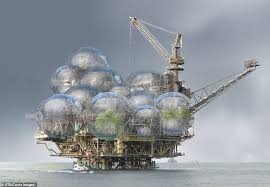
Breaking News
 BREAKING EXCLUSIVE: "This Wasn't Panic Buying Or Selling- IT WAS THEFT!"
BREAKING EXCLUSIVE: "This Wasn't Panic Buying Or Selling- IT WAS THEFT!"
 Somali Fraud is Miniscule Compared to Federal Reserve FRAUD
Somali Fraud is Miniscule Compared to Federal Reserve FRAUD
 Candace Owens Admits That Nevada Congressman Amodei Was Not Present...
Candace Owens Admits That Nevada Congressman Amodei Was Not Present...
 2025: The Year the Government Stopped Pretending It Cared About Freedom
2025: The Year the Government Stopped Pretending It Cared About Freedom
Top Tech News
 Laser weapons go mobile on US Army small vehicles
Laser weapons go mobile on US Army small vehicles
 EngineAI T800: Born to Disrupt! #EngineAI #robotics #newtechnology #newproduct
EngineAI T800: Born to Disrupt! #EngineAI #robotics #newtechnology #newproduct
 This Silicon Anode Breakthrough Could Mark A Turning Point For EV Batteries [Update]
This Silicon Anode Breakthrough Could Mark A Turning Point For EV Batteries [Update]
 Travel gadget promises to dry and iron your clothes – totally hands-free
Travel gadget promises to dry and iron your clothes – totally hands-free
 Perfect Aircrete, Kitchen Ingredients.
Perfect Aircrete, Kitchen Ingredients.
 Futuristic pixel-raising display lets you feel what's onscreen
Futuristic pixel-raising display lets you feel what's onscreen
 Cutting-Edge Facility Generates Pure Water and Hydrogen Fuel from Seawater for Mere Pennies
Cutting-Edge Facility Generates Pure Water and Hydrogen Fuel from Seawater for Mere Pennies
 This tiny dev board is packed with features for ambitious makers
This tiny dev board is packed with features for ambitious makers
 Scientists Discover Gel to Regrow Tooth Enamel
Scientists Discover Gel to Regrow Tooth Enamel
 Vitamin C and Dandelion Root Killing Cancer Cells -- as Former CDC Director Calls for COVID-19...
Vitamin C and Dandelion Root Killing Cancer Cells -- as Former CDC Director Calls for COVID-19...
Architects show how disused oil rigs could be turned into floating green cities...

As much of the world faces social isolation due to the deadly coronavirus, an architectural firm may have envisaged the ultimate quarantine spot.
Paris-based XTU have designed incredible concept cities which tower above disused oil rigs in a future without the need for the fuel.
Mock-ups of the offshore metropolises show people would live in bubble-like houses stacked on top of each other, while surrounded by vegetation and wind turbines.
One idea sees five oil rigs joined up together, with a narrow bridge linking the heavily-forested islands that have accommodation below the soil.
Some of the cities even feature small waterfalls which cascade down from an unknown source, through the buildings and into the sea.
The project, titled x_lands, imagines the offshore rigs transformed into habitable platforms for a world after the oil age.
XTU said: 'We felt it is time to think after the oil age. For millions of years, nature has stored beneath the earth's surface, including CO2 in the form of petroleum. For more than 100 years, humans have been extracting this resource for their needs.



